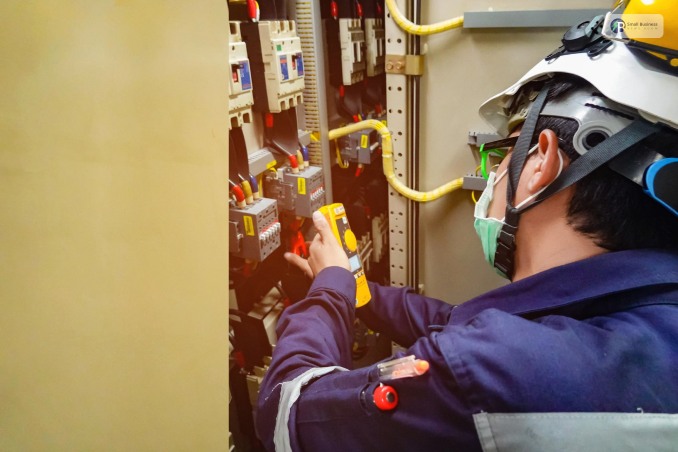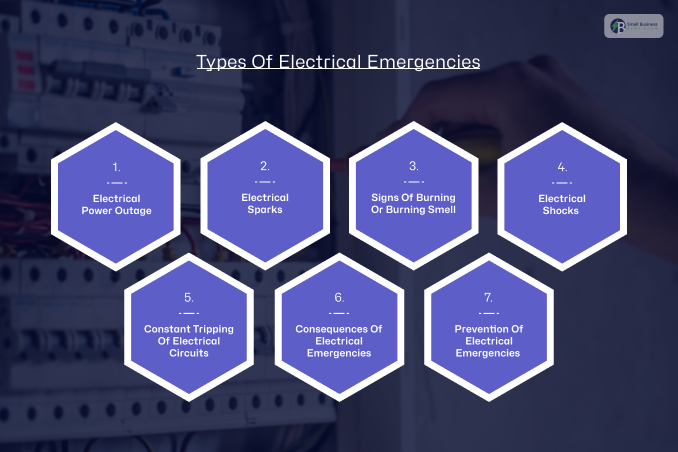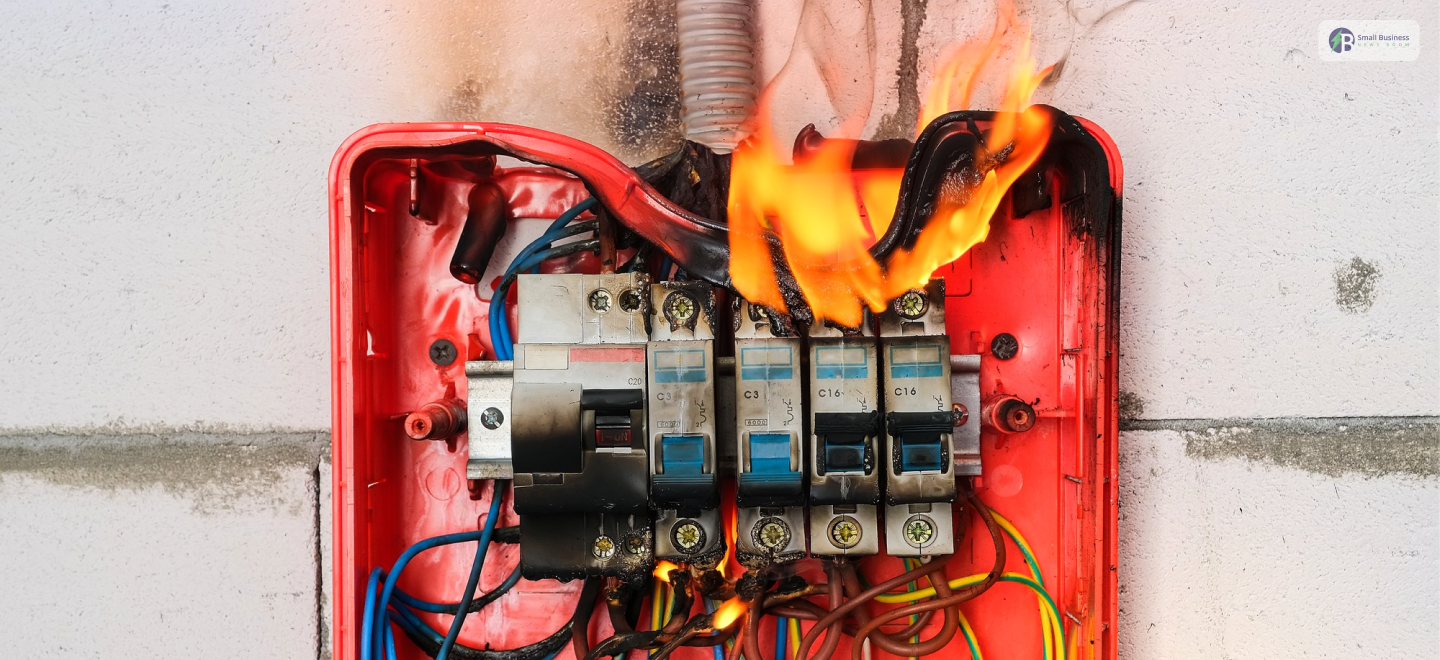Table Of Contents
- What Are The Causes Of Electrical Emergencies?
- What Are The Types Of Electrical Emergencies?
- 1. Electrical Power Outage
- 2. Electrical Sparks
- 3. Signs Of Burning Or Burning Smell
- 4. Electrical Shocks
- 5. Constant Tripping Of Electrical Circuits
- Faulty wiring or malfunctioning appliances can cause electrical shocks, which can be fatal if the voltage is high enough.
- How Can You Handle Electrical Emergencies?
What Are The Common Causes Of Electrical Emergencies And How Can They Be Prevented?
Last Updated on: December 3rd, 2025
Whether it is about the household appliances or the workplace equipment, we are always surrounded by electrical devices.
Now, most of us can easily spend our lives without experiencing an electrical incident or worse. An accident! But we cannot predict the future. So, it is always better.
In this article, I will discuss the causes, consequences, and prevention of electrical emergencies. Additionally, I will also share some tips that may help you if such incidents occur.
What Are The Causes Of Electrical Emergencies?

There could be electrical emergencies resulting from various reasons. One of the leading causes of such incidents is the internal wiring fault or older people and overly utilized electrical equipment.
Among the many kinds of electrical appliances and devices, each is meant to function at a particular voltage level.
However, overvoltage or undervoltage situations may result in sparks or fires when electrical appliances malfunction.
According to the U.S. Fire Administration (USFA, electrical malfunctions are responsible for around 6.8% of residential fires every year. It has caused over 25,700 fires and approximately 310 deaths annually.
Another common cause of electrical emergencies is human error, such as mishandling of electrical equipment or tampering with the electrical system.
In countries like India, the monsoon rains often lead to water seepage in wiring. This is why short circuits have become a common occurrence.
On the other hand, the Australian air is full of salt, and humidity causes major trouble for electrical systems. In the United States, in older homes built in 1970, the outdated aluminium wiring poses high risks.
In some cases, natural disasters like lightning strikes or strong winds can also damage power lines. These can cause electrical emergencies.
Aside from these, electrical emergencies can also be caused by power outages or overloads on the electrical grid.
When too many devices are plugged in and drawing energy at once, it can overwhelm the system and cause a blackout.
What Are The Types Of Electrical Emergencies?

Electricity and all the equipment that it operates just in the background, and we forget that it even exists. Don’t we just take it all for granted? We think there is no way we will ever have to come across an electrical emergency.
But how incorrect is that? There is no guarantee that you are safe from electrical emergencies. It may happen anywhere and anytime. These are unexpected occurrences and may come up anytime. If you are aptly aware of its kinds and types, it may become easier for you to take precautions and be aware before it gets too late.
1. Electrical Power Outage
This is one of the most common electrical emergencies. In certain situations, an emergency of this kind totally ceases your ability to do anything immediately.
Shorter and isolated power outages may occur because of the following:
- External maintenance work
- Weather conditions
- A piece of broken equipment or appliance
Nearly two-thirds of power outages in various metropolitan areas are caused by failing trees and branches hitting the electrical powerlines.
It may become concerning if this goes on for a long time. Therefore, if you experience a long power outage, the first thing to do is contact your electricity supplier to understand the reasons behind it.
2. Electrical Sparks
Flames or electrical sparks are yet another clear sign of an electrical emergency. Be it an electric spark coming out of any appliance or flames near electrical equipment, the first thing to do is take immediate action.
The research by the National Fire Protection Association (NFPA says that 13% of electrical fires begin in outlets, receptacles, and plugs! Often due to wear or overloading.
Contact an electrician in Melbourne (or wherever you reside) as soon as possible. Leaving it free for a long time might just worsen things even more.
3. Signs Of Burning Or Burning Smell
A burning smell always signals overheated wires as well as insulation damage. This can easily precede a fire. In such cases, you must turn off the main power supply immediately.
When inspecting homes in humid regions like the coastal areas of the US, you can find that the moisture can lead to accelerated insulation breakdown. This breakdown can produce a faint “plastic” burning odor even before a visible smoke appears.
4. Electrical Shocks
Electrical shocks are yet another example of an electrical emergency. If you ever experience an electrical shock, no matter how minor it is, do not take it lightly. Electrical shocks are major indicators of faulty wiring.
Centers for Disease Control and Prevention, or CDC, reported that around 300 deaths and 4000 non-fatal electrical injuries occur annually in the US. These occur due to home-level shocks or DIY electrical work.
Therefore, apart from the shock you get, they also pose a major risk of electrocution.
If you get an electric shock, seek medical attention immediately. It is necessary that you look after yourself first.
Once you are done with it, contact an electrician or the electric company to look after it and repair the system. This will make sure that there are no such events in the future.
5. Constant Tripping Of Electrical Circuits
If a circuit breaker that repeatedly trips continues, it can be regarded as an electrical emergency in certain instances.
Circuit breakers are designed to break only short circuits or overloads. This can further protect the entire electrical system from damage. And you can easily reduce the risk of fires.
Nevertheless, if the circuit breaker keeps tripping frequently, and there is no apparent reason for it.
This may indicate that there are electrical problems inside the walls waiting for you to discover them. Such issues must be prioritized and handled by specialists without any delay.
Per IEC 60898 standards, the breakers are highly designed to trip current. The continuous tripping indicates improper top balancing of the load or insulation failure.
Faulty wiring or malfunctioning appliances can cause electrical shocks, which can be fatal if the voltage is high enough.
According to the World Health Organization (WHO), electrical injuries take up about 5% of all hospital burn unit admissions.
The percentage of electrical burns varies depending on the economic status of the country. In developed countries, 0.04% to 5% of hospital admissions are in the burn unit.
In developing countries, electrical burns have become more common. They are responsible for about 27% of burn unit admissions.
First and foremost, electrical emergencies can lead to situations like fires, which can spread rapidly and cause damage that might be costly.
Moreover, blackouts resulting from electrical emergencies affecting households could become a real nuisance to the day’s routine.
In contrast, it is uncertain how severe the consequences would be for hospitals or factories that heavily depend on electricity.
Besides all these, some of the electrical emergencies can inflict damage to the electronic devices you own or cause disruptions in the supply of electricity to your neighborhood, apart from which they might have only come about after such a long time.
7. Prevention of Electrical Emergencies
The most effective way to avoid electrical emergencies is to keep your electrical installation and appliances in good condition.
Periodic upkeep and checks performed by a licensed electrician will not only spot serious issues but also help in solving them at the initial stage.
Furthermore, it is an absolute requirement that proper care measures be taken while using electrical appliances or gadgets.
Among these, there are such things as
- Not overloading power outlets with plugs,
- Unplug the devices or appliances when they are not being used
- Refrain from utilizing worn or split cords or any other items
In addition, you can also hire a licensed and experienced electrician in Indianapolis or elsewhere.
They can help you with any electrical installations. Furthermore, they can ensure that the installations are up to code and safe for use.
How Can You Handle Electrical Emergencies?
If an electrical emergency occurs, you just need to remain calm and take quick action. If someone has suffered an electric shock, you must turn off the power source at once. After that, you can call for medical help!
If a fire results from an electrical emergency, always try to use a fire extinguisher if you have one. Once done, you can then leave the building.
It is better not to try to put out the fire with water, as water may be a conductor of electricity and, therefore, the risk of an electric shock will become higher.
In case an electrical emergency results in a power loss, it is good to switch off all the appliances and electronic devices to avoid damage when the power supply is restored.
Light should be taken from flashlights or battery-operated lanterns instead of candles to avoid the risk of fire.
Read Also:















